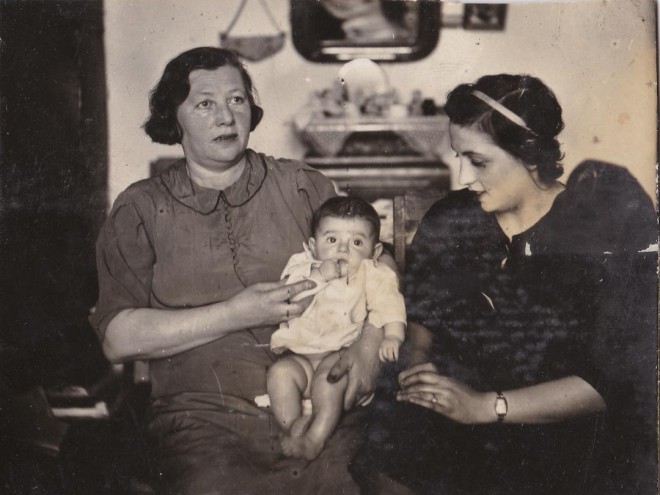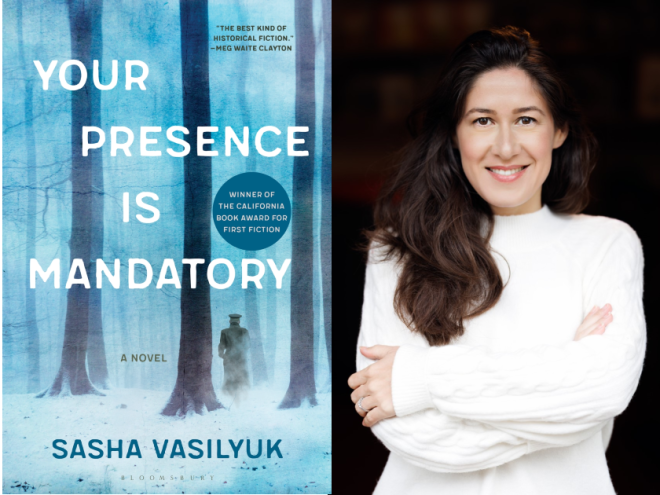
Leo Tolstoy wrote in Anna Karenina, “All happy families are alike. Each unhappy family is unhappy in its own way.”
Well, according to some, all Soviet Jewish immigrant families are alike, too. As are all interracial families.
When my first historical fiction novel, The Nesting Dolls—which features the daughter of Soviet Jewish refugees dating an African American man—came out in 2020, I was advised that I didn’t understand how immigrant families worked. No Soviet Jewish family would ever accept such a pairing, I was told. They would certainly never accept it as calmly as the characters in The Nesting Dolls did.
So, funny story: I am a Soviet Jewish immigrant. My husband is African American. My parents are … chill.
I was also advised that I didn’t understand African American culture.
I was told that my African American characters were too erudite, that the fact that they had interests and could discuss topics outside of merely being African American — ranging from comic books to Shakespeare plays to computer programming — didn’t feel realistic. I was accused of failing to represent the authentic Black experience.
A smarter writer than I might have backed down in the face of such criticism. I doubled down instead.
In my forthcoming work of historical fiction, Go On Pretending, I don’t just feature a New York Jewish soap opera writer (my past gigs include working for As the World Turns, Guiding Light, All My Children, and One Life To Live), but also her love interest, an African American actor, Shakespeare scholar, and graduate of Columbia University.
Being a writer, I was obliged to make their lives difficult. My husband and I got married in 1999. Rose and Jonas get engaged in 1956. Though interracial marriage was always legal in the state of NY, this was over a decade before Loving v. Virginia made it the law of the land. Rose is also Jonas’s boss: he is an actor on the radio soap opera that she writes. This becomes an even bigger problem when the show is set to transition to television, since he is voicing a presumably white character.
But the problems Rose and Jonas face all come from the outside, not the inside, and they are professional in nature. Jonas is fired. Rose can’t find a producer for her Marxist retelling of Othello. Their personal relationship, however, is steady. Even the different religions of their parents aren’t a problem, as both Rose and Jonas are atheists.
My husband didn’t convert, but we do have a Jewish home. Our sons had a bris. Our daughter went to Jewish Day School. My oldest son was a Bronfman Youth fellow and my daughter a Maccabi athlete. We celebrate all the Jewish holidays. My husband did his time taking the kids to Tot Shabbat. He even fasts on Yom Kippur and avoids bread over Passover in solidarity.
Race and religion and culture contribute to who Rose and Jonas are, but they don’t define them.
While we talk about politics and current events, many of which have a racial and religious component, we also talk about other things. My husband loves comic books and science fiction and soap operas. Being Black is just one of many parts of his life. Race and religion and culture contribute to who Rose and Jonas are, but they don’t define them.
I’m sorry if some readers find that inauthentic.
No, wait. I’m not sorry.
I don’t care.
Interracial romance was only a part of The Nesting Dolls. But it is the heart and soul of Go On Pretending.
Did I base Rose and Jonas on my husband and me? Of course. How can anyone write a love story without referencing what they believe love is? (For those curious, I don’t need flowers or cards or dramatic proclamations. I find a clean bathroom much more romantic.)
I may have based aspects of Rose and Jonas on my husband and I, but living in a different time period obviously affected the choices they make, which are based on the options available to them. Believing they’ll have a better life there both as an interracial couple and as artists, Rose makes the radical decision to defect to the Soviet Union. (Definitely not a choice I’d ever make, but then Rose also goes to fight in the Spanish Civil War.) The consequences of Rose’s act echo down to her daughter, Emma, and even to her granddaughter, Libby, who spend their lives looking for a place to belong, flirting with everything from libertarianism to anarchy.
Rose and Jonas were inspired by my husband and I but, like all fully realized fictional characters, they quickly took on a life of their own.
Yes, Rose is a Jewish woman descended from Russian immigrants. Yes, Jonas is an African American man. But if they don’t happen to fit the boxes some have decided such characters and relationships must, then well, frankly, I’m glad.
I wanted to write something original. Something fresh and exciting and compelling. I’ll know I’ve succeeded if readers think Rose and Jonas are like no characters they’ve ever met before.

Go On Pretending by Alina Adams
Alina Adams is the NYT bestselling author of soap opera tie-ins, figure skating mysteries and romance novels. Her Regency romance, The Fictitious Marquis was named a first Jewish #OwnVoices Historical by The Romance Writers of America. Her Soviet-set historical fiction includes The Nesting Dolls, My Mother’s Secret: A Novel of the Jewish Autonomous Region, and the May 2025 Go On Pretending. More at: www.AlinaAdams.com.



